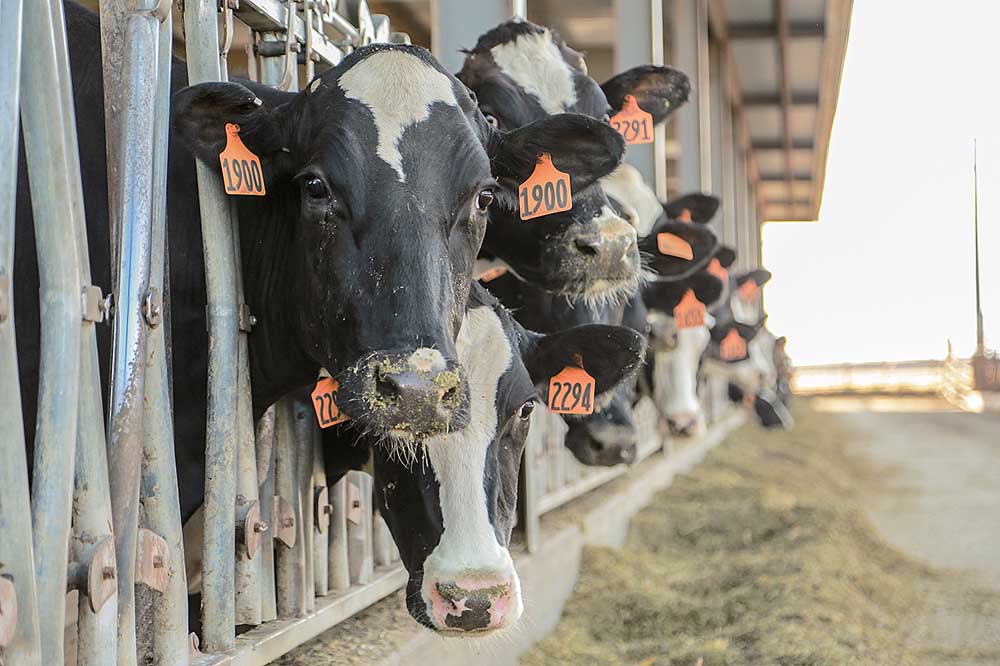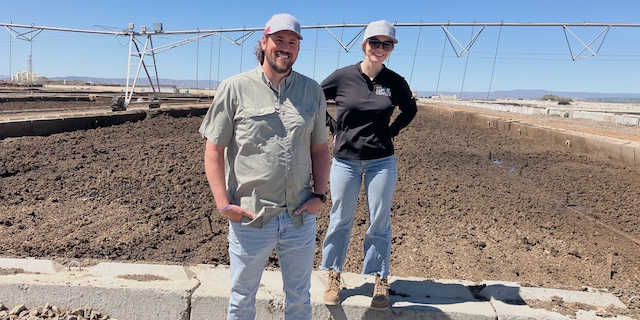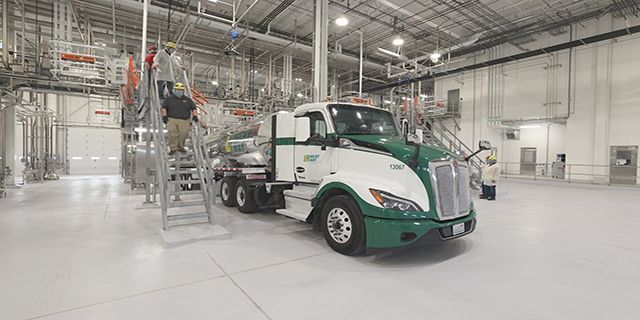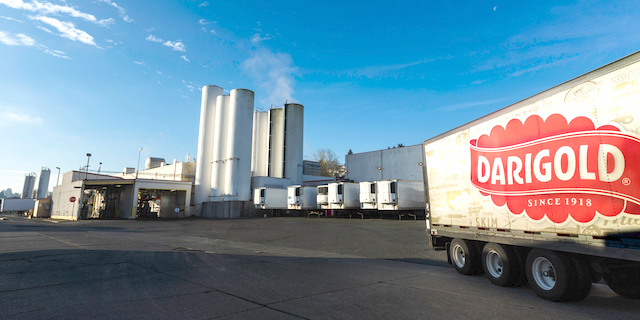Darigold’s new strategy means big changes for some members
Published 3:30 pm Monday, March 16, 2020

- Cows at Darigold member Cole Dairy in Warden, Wash.
EUGENE, Ore. — On Feb. 29, the owners of Konyn Dairy sold their 1,500 dairy cows and closed.
The sale closed the final chapter of the dairy’s 44-year history.
“We had no plan of leaving dairy so soon,” said Leticia Konyn Ficek, who co-owned the dairy with her brothers, David and James Konyn, and their parents, Jack and Marian. “If you’d told us December first we’d be selling, I’d say you’re crazy.”
The Konyns said recent changes made by Northwest Dairy Association prompted their decision. NDA — with Darigold as its marketing and processing arm — is a Seattle-based cooperative with about 430 member farms in Washington, Oregon, Idaho and Montana.
The domestic dairy industry has in recent years been limping along with falling demand for fluid milk and depressed prices. To adapt, NDA has been changing its game plan, impacting farmers across the Northwest.
In December, NDA announced to members the company would make big changes in 2020, including reinvesting a portion of farmer profits in new equipment and products, raising the penalty on overproduction and opening the option for farms to sell their “base” to other farms.
Farmers have a base, or production quota, of milk they’re permitted to ship to Darigold so the company won’t be oversupplied. Darigold declined to comment on specifics, but the base is calculated using various factors like the overall market.
The opportunity to sell base turned it into a commodity. Steve Matzen, NDA senior vice president, said the company doesn’t officially recognize the value of base, but “members do business with one another.” Some farmers realized they might be better off selling their base than staying in the industry.
That’s why Konyn Dairy sold its base and cows, Ficek said.
“We just saw an opportunity and took it,” said Ficek. “It made good business sense, but it’s bittersweet. We’ve done this all our lives, raised our kids here. We didn’t think we’d stop dairying for another 10 to 15 years, but we knew an opportunity like this might not come again.”
The Konyns said they no longer plan to run a farm operation and will seek employment elsewhere.
In January, Rod Tjoelker, a former NDA member and dairy farmer in Whatcom County, Wash., also sold his cows and closed RTJ Farm, founded 1948.
Like the Konyns, Tjoelker hadn’t planned to quit dairying until he retired. On Dec. 19, Tjoelker said, NDA announced the upcoming changes. On Jan. 5, Tjoelker decided to sell, and on Jan. 16 NDA approved the sale. By the end of the month, all of his 530 cows were gone.
“It felt very quick,” he said. “We were spinning. We sold the base before we had the cow buyer lined up. It was a gutsy move.”
Tjoelker said he plans to run a small herd of beef heifers and rent some of his land to a potato grower.
He said closing the dairy has created ripples in the local economy, including equipment companies, his hay broker and others.
“It’s a real shame for our area,” he said.
NDA is also upping the penalty on production over the base, cooperative members said.
Dairy economists say overproduction of milk means lower farm-gate prices.
According to a source who received Darigold’s letter to members and did not wish to be identified, some farmer-members have produced twice as much milk as their base allows. To discourage overproduction, the source said, Darigold recently raised its overbase charge, meaning farms that produce too much milk will be paid significantly less per hundredweight for excess milk.
“What Darigold is trying to do is match supply with profitable demand,” said Gary Genske, a New Mexico dairy farmer and accountant for the dairy industry. “Northwest Dairy is kind of fixing the oversupply problem. I’ve got to hand it to them for stepping up.”
Every farmer Capital Press talked to said having a strong base system is important. But farmers appear to have mixed opinions about the co-op’s other new strategies.
Darigold is seeking to expand its international market, where demand for dairy is growing.
According to McKinsey & Co., a global management consulting firm, U.S. dairies have a domestic milk surplus and an international dairy deficit, so long-term opportunities are enormous.
About 40% of Darigold’s milk goes overseas, said Steve Matzen, NDA vice president, and the company continues its international expansion.
But farmers and financial experts say dairy cooperatives must be strategic when selling on the global market, or they may inadvertently reduce rather than lift producer profits.
According to McKinsey & Co.’s 2019 dairy report, prices can suffer if companies don’t systematically “identify risk by developing insights on supply, demand, policy and political factors, and trends.”
Genske, the dairy industry accountant, said dairy classes III and IV — including cheese, butter and powder — are “sold at yard sale prices around the world.”
Sarah Taydas, Darigold spokesperson, said the company mainly exports classes III and IV: whey proteins, milk proteins such as skim milk powder and milk protein concentrate, cheese and butter.
Darigold’s international customers, said Taydas, are food manufacturers that make products such as infant formula, confections and nutritional products.
“I’m not at all opposed to global marketing,” said Genske. “You just have to be so strategic about it, otherwise that powder is just thrown onto the world market, and it does nothing more than suppress the producer’s pay price.”
NDA is also making changes in the U.S.
Taydas said the company is investing $67 million in its Boise, Idaho, plant to add capacity for a new fluid-milk product and a modern aseptic, or contamination-free, bottling line.
One Darigold farmer who did not wish to be identified said although he supported the long-term investment strategy, he questioned the timing.
“They’re doing a major reinvestment,” he said. “To do that, they need a bunch of equity from the farmers, meaning paycheck cuts. You’ll get that back someday, but, oh boy, it might be a while. It seems to me they should’ve been modernizing plants gradually instead of suddenly.”
Darigold talked in generalities, but declined to comment on the specific equity amount.
Despite criticisms regarding equity, farmers told the Capital Press they were pleased with Darigold’s strategy for a new fluid milk product.
The innovative product, called Darigold FIT, is lactose-free, has 75% more protein, 40% less sugar and a fresh packaging design. Its sales have more than doubled in six months.
Farmers say they’re excited because, according to the International Dairy Foods Association, fluid milk pays farmers the highest farm-gate price.
Tjoelker said although the investments would have hit his paycheck hard if he hadn’t closed his operation, he understands why the co-op is investing in new technology.
“They’ve got some good products they need to gear up for,” he said. “They’re upgrading a plant to move the FIT milk forward. I’m not saying Darigold is perfect, but they’re doing some really good things.”
Milk
• Classic milk
• FIT ultra-filtered milk
• Lactose-free milk
• Buttermilk
Butter
• Sweet cream butter
• Farmer’s reserve butter
Sour cream
• Original sour cream
• Mexican style sour cream
Cottage cheese
• Classic cottage cheese
• Low fat cottage cheese
Cheese
• Block cheese varieties
• Sliced cheese varieties
• Shredded cheese varieties
Creams and creamers
• Half and half
• Whipping cream
• Coffee creamers
• Aerosol dairy whipped topping
Yogurt
• Plain yogurt
• Fruit-flavored yogurts
• Vanilla yogurt






